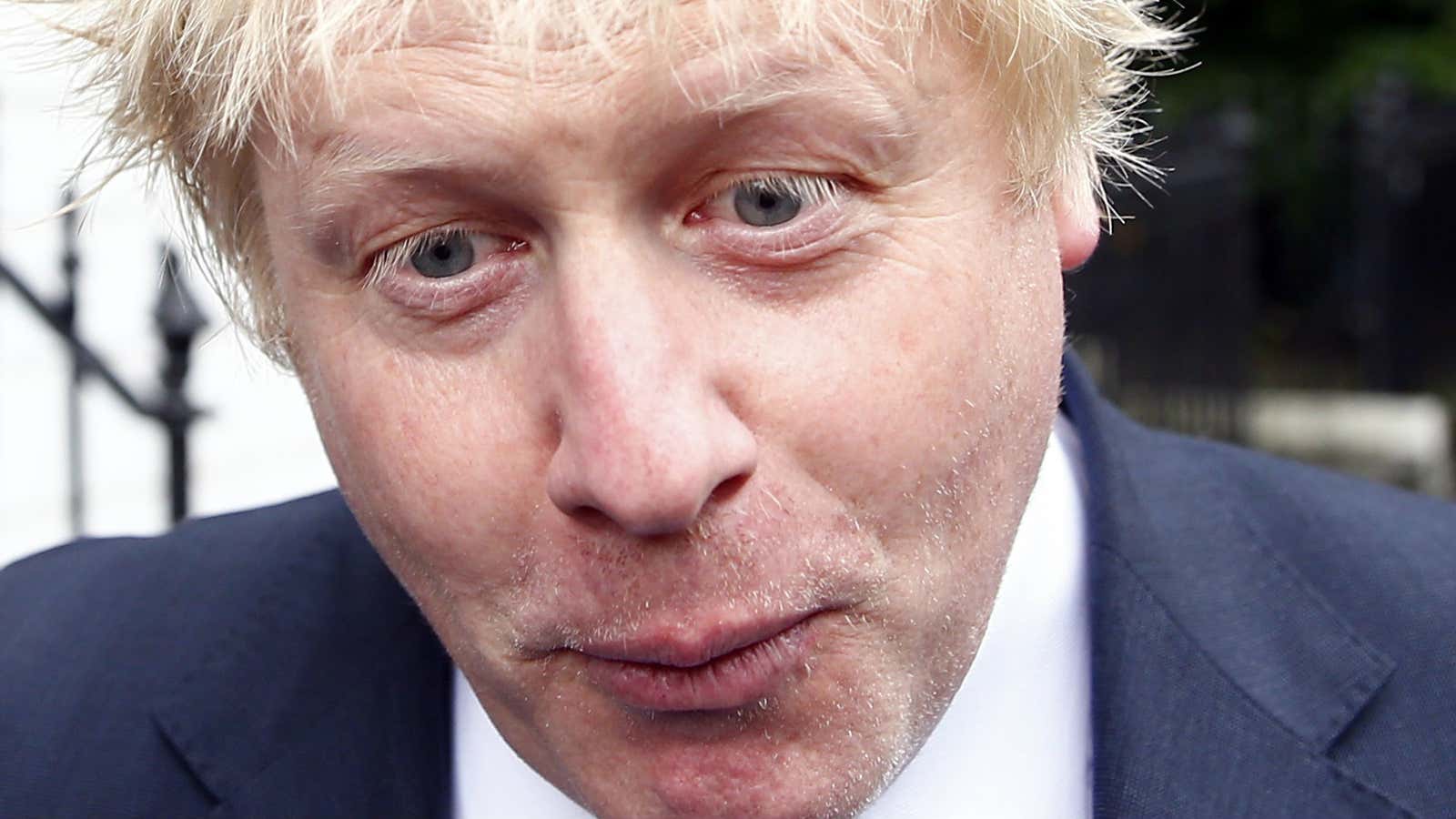If you look at the financial markets, the Brexit vote will wreak havoc on the UK, Europe, and possibly the global economy. But if you look at political history, there are signs that things may not end so dramatically.
Such is the viewpoint (paywall) of Gideon Rachman, a Financial Times columnist who proffered (paywall) months ago that Brexit, then considered unlikely, would actually happen. In a column today (June 27), he writes that his depression over Britain’s vote to leave the EU ended abruptly when he realized that the move is actually just politics as usual for EU members looking to extract concessions from the union.
“Any long-term observer of the EU should be familiar with the shock referendum result. In 1992 the Danes voted to reject the Maastricht treaty. The Irish voted to reject both the Nice treaty in 2001 and the Lisbon treaty in 2008,” he writes. “And what happened in each case? The EU rolled ever onwards.”
Both Denmark and Ireland leveraged these protest votes to extract concessions from the EU, and then held second referendums in which they voted “yes” to the treaties and moved on, still entwined with the EU.
Rachman wonders whether a second referendum is part of the plan for Boris Johnson, ringleader of the “leave” campaign and now a frontrunner to become Britain’s next prime minister. As a journalist in Brussels during the Danish referendum on Maastricht, Johnson is familiar with re-do referendums. Last week’s vote was a means for Johnson to secure the country’s top job, Rachman writes, and once he takes over “he can reverse his position on the EU.”
To judge from his first substantive statement after the vote, a rather curious column in the Telegraph, this isn’t so far fetched. Of course, engineering a complete about-face—particularly when it comes to some sort of compromise on the free movement of labor to and from the EU—would take some serious doing. While some European leaders are suggesting giving the UK breathing room to digest its decision, David Cameron’s cabinet declared today that there will be no second referendum. But they won’t be in charge for much longer.




